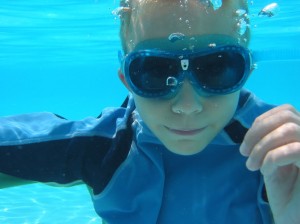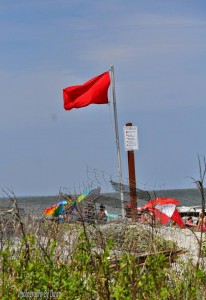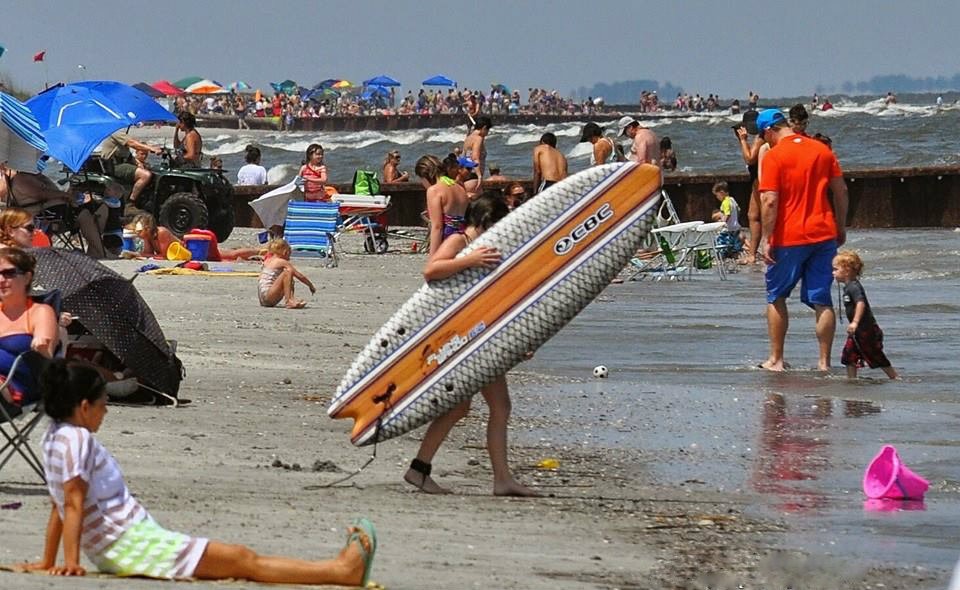Keep yourself & family safe in the water this Summer
When the warm days of summer arrive, the water that we are surrounded by beckons us to escape the heat and humidity. We need to make sure that we stay safe in the water.
Lowcountry kids are fortunate to grow up with water all around them. Childhood days can be spent exploring the natural beauty of the Atlantic ocean, our abundant tidal marshes and rivers and swimming in backyard and neighborhood pools.
While spending our days at the beach or in the pool, it is easy to be lulled into a sense of security.
Many parents don’t realize that drowning is the second leading cause of accidental death for children under the age of 15. In the overwhelming majority of these cases, a parent or caregiver claimed to be supervising the child. It is important for parents to understand that a drowning child has as little as 20 seconds before submersion occurs; if a caregiver is distracted even for a brief moment, the result can be devastating.
Mario Vittone, an expert in drowning and water safety wrote a compelling and widely circulated article titled “Drowning Doesn’t Look Like Drowning” in which he described the act of drowning. (www.mariovittone.com/2010/05/154/) In it, he wrote: “There is very little splashing, no waving, and no yelling or calls for help of any kind. To get an idea of just how quiet and undramatic from the surface drowning can be, consider this: It is the number two cause of accidental death in children, age 15 and under (just behind vehicle accidents) – of the approximately 750 children who will drown next year, about 375 of them will do so within 25 yards of a parent or other adult. In ten percent of those drownings, the adult will actually watch them do it, having no idea it is happening.” (source: CDC)
Most water-related accidents can be avoided and knowing how to prevent them is key to having a summer filled with joy and family fun in the water. Before you head out this season, make sure you are prepared.
At the Pool…
Residential swimming pools are the most common site for a drowning to occur in children under the age of four. Supervision by a lifeguard or designated water-watcher is important to help protect children. Those watching a pre-school aged child should provide “touch supervision” and remain close enough to reach the child at all times.
water-watcher is important to help protect children. Those watching a pre-school aged child should provide “touch supervision” and remain close enough to reach the child at all times.
If you have a pool in your backyard, it is vital that the recommended barriers and safety devices be installed. In 2010, the American Academy of Pediatrics reversed it’s an earlier position that recommended against swimming lessons for toddlers. In the past, the organization did not recommend lessons for children between the ages of one and three, fearing that it could give parents a false sense of security. New data suggests that participation in formal swimming lessons can reduce the risk of drowning by as much as 88% among children ages one through four. Fortunately, in our area, there are many excellent swim programs and instructors for kids of all ages.
Island Swim in Bluffton offers advice for parents. “When looking for an instructor, first and foremost make sure the instructor has had some formal training like WSI certification from the Red Cross.” He encourages parents to observe the instructor while teaching and advises them to do so more than once. “Watch how they interact with the students, listen to what they say. Do they look like they are enjoying what they do? Do they genuinely seem to like working with children?” The instructor should build trust while making a new swimmer feel safe.
If your child is afraid of the water, the skilled teacher should be able to discover what he or she is afraid of and work to overcome that in the lessons.
The YMCA of Beaufort County has been teaching kids how to swim for years. For parents who would like swim instruction for their child but cannot afford the cost, the YMCA offers a scholarship program.
Over the years, the YMCA has generously given out tens of thousands of dollars in aquatic scholarships and offered swim lessons at a reduced rate or free, depending on economic need. Also, the majority of the public schools in Bluffton and Beaufort offer free swim lessons for students during the school day either through PALS of Beaufort County (2nd grade) or the YMCA (Port Royal Elementary 2nd-5th grade).
Several years ago, two young boys drowned playing in a pond on the Burton Wells property. Hence, as a result of this unfortunate accident, County Council made a commitment to provide an opportunity for as many youngsters as possible to learn how to swim.
At the beach…
While the majority of drownings for young children occur in swimming pools, most people over the age of 15 drown in a natural water setting.
Hunting Island Beach has instituted a flag warning system to warn of dangerous currents and other conditions, and the State Park also has lifeguards on the job only along North Beach. Park Rangers are always readily available to help when needed.
lifeguards on the job only along North Beach. Park Rangers are always readily available to help when needed.
Over in Hilton Head, Alan Reece is the general manager for South Shore Beach Service and has over 30 years of lifeguarding experience. South Shore Beach Service provides the lifeguarding and beach patrol for Hilton Head. When deciding which beach is best to take your children to, Alan suggests choosing one where lifeguards have duty hours. He also reminds parents not to rely solely on the lifeguard to watch your child and “never allow your child to swim alone.”
Upon arrival at the beach, Alan advises checking with the lifeguards for an update on beach and weather conditions. He adds, “Rapidly changing weather can quickly create rough conditions including large waves and strong currents.” Rip currents are notoriously dangerous and many people are caught off guard when they encounter them. Many fatalities occur when people panic and try to fight their way back to shore against the current. Educating your kids to stay calm and to never try to out swim a rip current is important. Swimmers should float until they are out of the rip current, at which point their body will no longer feel as if it is being pulled away from shore. When they are out of the current it is safe to swim back to shore.
Alan asserts the importance of only using Coast Guard approved life jackets for children who are unable to swim. “Parents of nonswimmers often use flotation devices, like inflatable rafts to go offshore. If they fall off, they can quickly drown.” If your child does get into trouble while in the water Alan offers these steps to take:
- Call 911
- Notify the lifeguard.
- Know your swimming limitations as a parent.
- Keep calm and calm your child.
- If, as a parent, you enter the water to assist your child, take some / any type of flotation device that can aide in keeping the child afloat.
Again, swim instruction is underscored as the best defense against drowning and Alan encourages parents to teach kids at an early age.
A few of our local swim programs are listed below:
Island Swim School offers lessons in Bluffton. Ages 6 months to Adult. Lessons for Special Needs Students are also available. www.islandswimsc.com 843.298.7171
PALS offers lessons in Bluffton and Beaufort County.
Battery Creek Indoor Pool – 843.255.6760
Beaufort Indoor Pool – 843.522.2903
Bluffton Indoor Pool – 843.706.2285
Redfish and FINS offers pre-team and competitive swim programs in Bluffton. Year round and summer league. www.finsswim.com
YMCA of Beaufort County. Group or Private Lessons for 6 months to Adult. Youth competitive swim program during the school year and summer. www.ymcabeaufortcounty.com 843.522.9622
Story written for ESPB by Kelley Luikey








